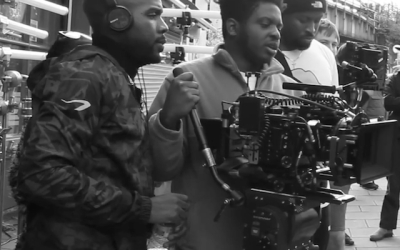Lightricks, a leading maker of mobile photo and video editing tools, has published the results of a study conducted in partnership with research firm YouGov. Based on responses from 1000 US-based creators, the study found that more than 50% of respondents are in favour of using AI to enhance and differentiate their content.
While the interest in AI is partly driven by editorial goals, there is also a strong commercial imperative: “According to creators,” said the survey, “56% of brands are already specifically asking for AI generated content for their partnerships, and 56% of respondents working with brands have been asked to use AI in the last two years.”
Lightricks, which claims to have been among the first companies to offer generative AI features for content creation using mobile tech, said: “Creators found that AI helped them produce stronger content for brands while able to keep their own style and voice, with 71% of creators saying followers responded positively to AI-generated content.”
Commenting, Lightricks CEO and co-founder Zeev Farbman said: “The power of generative AI will energise the Creator Economy, with AI-based tools and platforms accelerating a creator’s ability to unlock their full potential. New tools will streamline workflows, enhance skills, and create more effective money making opportunities.”
The study also found that the digital first economy has proved remarkably resilient in the face of a touch economic climate: “39% of creators say that despite current conditions, they have actually landed more brand deals,” said the study, “and 40% of creators say they’ve earned more from brand deals in the past year.”
That said, a significant number of creators acknowledge that this is not their only job: “Many are still concerned about taking the leap into being a full-time creator, with 42% of creators saying content creation makes up less than 25% of monthly income.”
Another key finding from the study is that digital-first talent have largely turned their back on the term influencer. 55% think of themselves as a creator, while just 7% prefer the term influencer. More than 57% of creators say they don’t care as much about influencing people, and 47% say that the term creator feels more authentic.
“In recent years people have gravitated toward creator versus influencer because it sounds more authentic, whereas influencer can diminish the effort needed to craft quality content,” said Corbett Drummey, VP, brand collaborations at Lightricks. “For many creators, it’s less about influencing and more about resonating with followers.”
Drummey also observed that creators are not just producing branded content for their own channels: “The best creators build large, loyal audiences, which brands love to reach. Creators also produce content for brands via channels other than their own.”
The focus of the survey was people age 18+ who “regularly edit/enhance digital photos and/or videos and share them online via social media (TikTok, YouTube, Instagram, Facebook, etc.) for money or aspire to create such content for money.”





